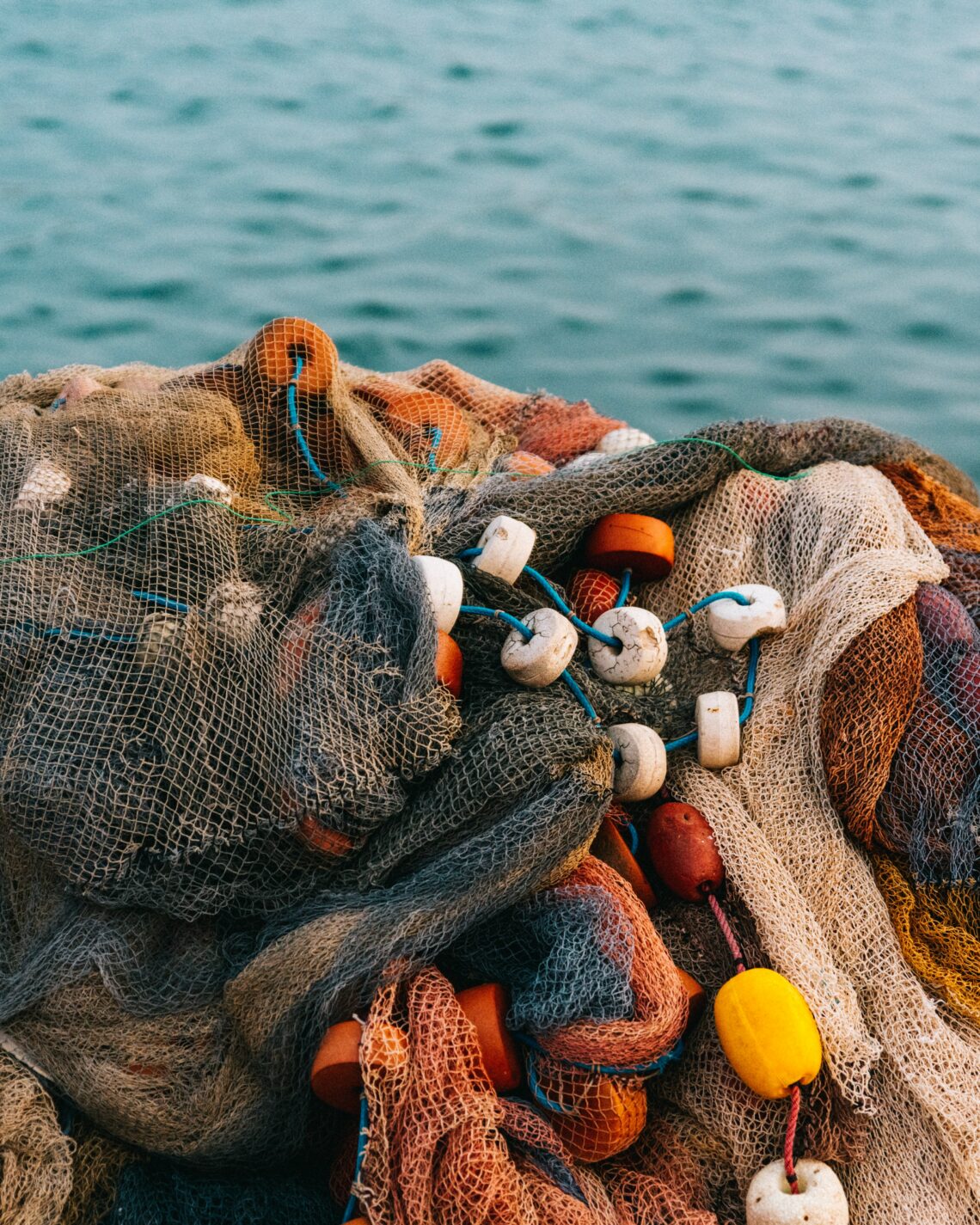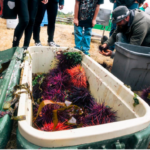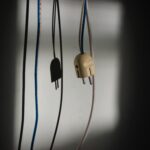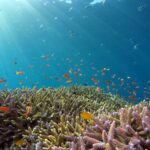This weekend I watched the incredibly shocking documentary Seaspiracy, directed by filmmaker Ali Tabrizi. Throughout my inquiry, I’ve been more focused on the science/sea life side of marine biology, but I wanted to take a different lens to the project.
Throughout the documentary, Ali and his partner Lucy explore the dark sides of the global fishing industry. They begin investigating the fishing industry in Japan – where dolphins are mass murdered by fishermen. The industry views the dolphins as a threat to their livelihoods as they do feed on fish, but killing dolphins is an extreme measure. The Japanese government supports this behaviour- and journalists who work to expose what’s really going on are often in danger due to the authorities working to protect the fishing industry. Dolphins and sharks are seen as by-catch by other fishing industries around the world. Ali’s documentary made the point that even though canned fish often has a sticker claiming to be dolphin-safe and sustainable, there’s no way of actually knowing this as what happens on the ships isn’t regulated. Ali and Lucy also uncovered that many fishing boats operate on slave labour, with many people forced into the profession and dying at sea. Not only are there social impacts, but Ali found that the majority of the plastic found in the ocean is from fishing nets and boats.
Overall, the documentary sends a message that there is almost no way to sustainably eat fish, and to solve these problems we must all stop eating fish or dramatically reduce our consumption. It made me reflect on my own consumption of fish. I don’t eat fish often – my roommate is a vegetarian so we don’t cook with fish at all. I’ll eat fish when I visit Winnipeg- my parents buy from a local shop which sources fish from Northern Indigenous communities. I also occasionally eat some seafood bought at smaller docks in Sooke. The documentary definitely made me want to talk to family and friends about fish consumption.
Overall, I think it was a good documentary, but suggesting that everyone stops or dramatically reduces eating fish is a huge ask and may not be achievable, especially thinking about how many people rely on fishing to sustain their families. From a teaching perspective, I’m not sure if I would show this documentary in class as it can be rather graphic and upsetting at times. The topic of sustainable fishing, however would be a really interesting topic to discuss in a class, and it could be useful to show clips from the documentary.





